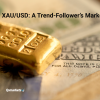OPENING CALL: The Australian share market is expected to open lower. The SPI200 futures contract expected to open down 2 points.
Most analysts are also now pricing in two rate cuts from the U.S. Federal Reserve this year.
Gold slipped but stayed above US$1,400 and WTI futures fell.
Overnight Summary
Each Market In Focus
Commonwealth Bank of Australia sees little material downside to AUD in the near term, despite the RBA cutting the cash rate to a record-low 1.00% this week. That’s because the impact of lower rates on the Australian is being countered by high prices for Australia’s commodity exports.
US share markets were closed on Thursday for Independence Day. On Wednesday the Dow Jones rose by 179 points or 0.7% to a record high. The S&P500 lifted by 0.8% to a record high and the Nasdaq was up 61 points or 0.8% to a record high.
The US bond market was closed for the Independence Day holiday. On Wednesday US 2-year yields fell by less than 1 point to near 1.764% and US 10-year yields fell by 2 points to near 1.95%.
U.S. job report is unlikely to convince the Federal Reserve to cut its target rate by half a percentage point at the end of the month.
After a 16% surge over the past month, it now fetches about $1,553.10 a troy ounce, a premium of almost $140 an ounce over gold. Both precious metals are down slightly today, however, as the dollar ticks higher.
U.S. crude-oil futures declined by about 0.6%, as investors remained concerned that global demand may not keep up with supply, evidenced by selloffs that followed OPEC+’s production cut extension earlier in the week.
European stocks edged slightly higher Thursday, a day after the Dow Jones Industrial Average hit a record, amid quiet trading sessions with U.S. markets closed for Independence Day.
The Italian share market rose 1% to hit its highest level in almost a year, while its bank index soared 3.4%.
Germany’s 10-year bond yield fell as low as minus 0.405%, which is below the European Central Bank’s policy rate of minus 0.4%. Benchmark yields hit new lows on Wednesday as investors speculated that the ECB would loosen monetary policy.
Asian stock markets were mixed, with Japan’s Nikkei 225 gaining 0.3%, while stocks in Shanghai fell by the same magnitude.
The dollar lost 0.2% against the Hong Kong dollar, bringing its decline over the past month to nearly 1%. One dollar now buys just HK$7.79, and this week is the first time the dollar has fallen below the HK$7.80 peg set by the Chinese territory for its currency since November 2017.
Ryan Lam, head of research at Shanghai Commercial Bank, attributes the Hong Kong dollar’s strength to investors preparing funds to subscribe to Budweiser’s initial public offering of its Asia-Pacific unit, which could raise as much as $9.8 billion.







 Access +10,000 financial
instruments
Access +10,000 financial
instruments

